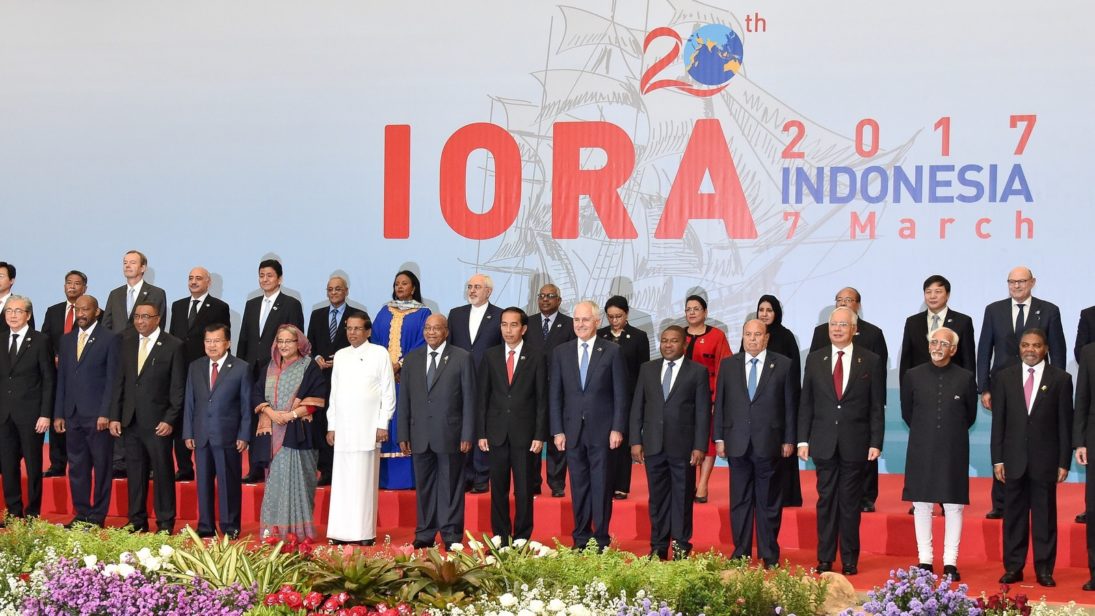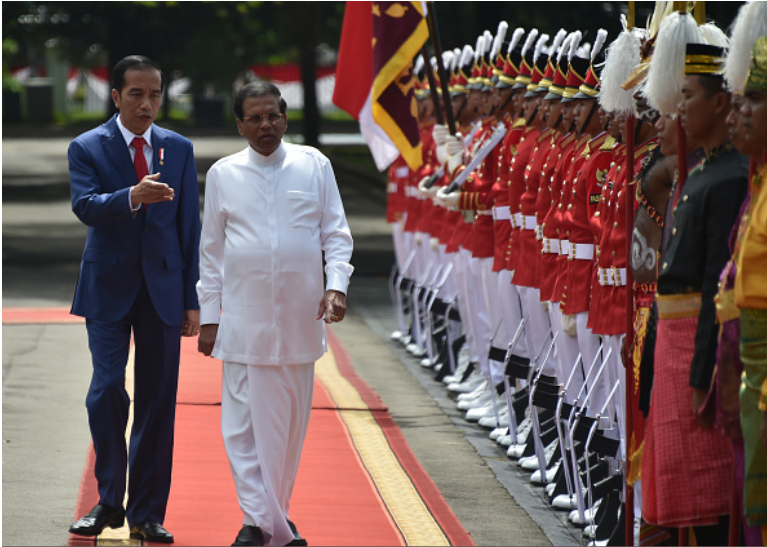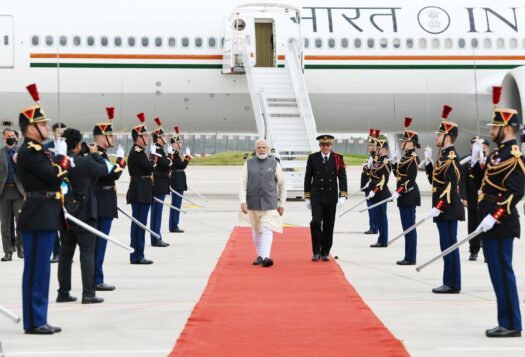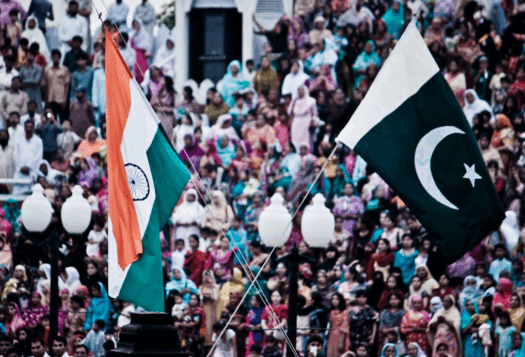
The Indian Ocean Rim Association (IORA) is a potentially key multilateral forum for Sri Lanka in its ambitions to become a regional hub in the Indian Ocean between Singapore and Dubai. Formed in 1997, the 21-member IORA is the only forum that specifically connects the states of the Indian Ocean region, which is fast becoming one of the major geopolitical theatres of current global politics.
IORA made little progress in its first 20 years towards its founding goal of enhancing regional economic cooperation due to a lack of interest from major powers, including India and Australia. However, 2017 has been a landmark year for IORA. The first IORA Leaders’ Summit was held in March of this year with Sri Lankan President, Maithripala Sirisena, in attendance. The meeting ended with the signing of the Jakarta Concord, which sets important standards related to freedom of navigation, counterterrorism, and enhancing regional trade that could form the basis of a rules-based framework for the Indian Ocean. The Concord was accompanied by an Action Plan, an initiative that sets concrete targets for the organization in the short, medium, and long terms.
The IORA Leaders’ Summit was followed by a Council of Ministers’ meeting in Durban, South Africa on October 18, attended by Sri Lankan Foreign Minister Tilak Marapana. At this meeting, Marapana lobbied for a stronger role for Sri Lanka within IORA. As a result, Sri Lanka was chosen as the lead coordinator for IORA’s Working Group on Maritime Safety and Security. Sri Lanka’s desire to lead within IORA is underpinned by the country’s growing self-awareness of its strategic location in the Indian Ocean as well as its vulnerability in the context of regional great power competition.
These developments indicate that this is an opportune time for Sri Lanka in the IORA. This article suggests how Sri Lanka can step up its engagement within IORA to realize its own national and security interests through this critical, multilateral forum.
Lobby for an Indian Ocean Code of Conduct
Small states like Sri Lanka especially stand to gain from a rules-based order in the Indian Ocean. Sri Lanka’s Prime Minister, Ranil Wickremesinghe, originally raised the idea of a Code of Conduct for the Indian Ocean even before the Jakarta Concord. Now that the Jakarta Concord has laid a foundation for a rules-based order in the region, Sri Lanka should lobby proactively with other small states in IORA – such as Singapore, Mauritius, and the Seychelles – to strengthen the Concord into a formal Code of Conduct to address common issues in the region.
Moreover, Sri Lanka should lobby for an effective, legally-binding dispute resolution mechanism to be incorporated into any potential Code of Conduct. There is currently no such mechanism attached to the ASEAN Code of Conduct for the South China Sea, for example, which has led to criticisms of the code’s effectiveness. The increasing importance of the “blue economy” and Sri Lanka’s own disputes with neighboring states like Bangladesh over the delimitation of its Exclusive Economic Zone also provides Sri Lanka with an impetus for introducing such a mechanism.

Strengthen Responses to Non-Traditional Security Threats
Sri Lanka should also take steps to strengthen its regional role in combatting non-traditional security threats. Wickremesinghe has suggested that the Sri Lankan Navy should patrol “the sea off Banda Aceh and the Straits of Malacca.” Such a step would, in the long run, help Sri Lanka plug a gap in Indian Ocean security coverage through anti-piracy patrols such as Combined Task Force 151 and Operation Atalanta in the western Indian Ocean and “minilateral” security mechanisms such as the Malacca Strait Patrol in the eastern Indian Ocean.
As mentioned above, Sri Lanka has already taken an important step in demonstrating leadership in maritime security through its role as lead coordinator for IORA’s Working Group on Maritime Safety and Security. One of its first steps in performing this role should be to realize a key maritime security goal in the IORA Action Plan: strengthening the Working Group’s cooperation with United Nations (UN) offices and agencies.
Sri Lanka could reach out to the UN Office on Drugs and Crime (UNODC), given that UNODC’s Indian Ocean Forum on Maritime Crime is already based in Sri Lanka. In particular, Sri Lanka could promote UNODC’s piracy prosecution model – which seeks to increase the efficiency of legal action against piracy in the western Indian Ocean – as a model for the whole Indian Ocean region. By doing so, Sri Lanka would also underscore the importance of robust normative responses in maintaining regional security.
Develop a Strategy to Realize Indian Ocean Development Fund
Finally, Sri Lanka should develop a strategy to realize Wickremesinghe’s proposal to establish an Indian Ocean Development Fund under IORA, similar to other regional development banks to allow for further investment in affiliated nations. Such an initiative could help finance infrastructure development, climate change adaptation efforts, and small and medium enterprise (SME) development. While Australia and Singapore are the only developed nations in IORA, there are nevertheless several important economies in the region such as India, Malaysia, Indonesia, and Thailand, that could potentially contribute towards such a fund. Sri Lanka should advocate this idea outside of IORA in its bilateral diplomacy with these nations.
Sri Lanka should also consider proposing an extraordinary meeting of the Council of Ministers to discuss establishing such a fund with all IORA member states. Additionally, Sri Lanka should seek to tie the fund to current IORA focus areas in economic cooperation, such as the promotion of SMEs, on which a January 2017 memorandum of understanding has already been signed among IORA member states.
Conclusion: Build up IORA Now
IORA began 2017 with a relative bang. It remains to be seen whether this momentum can be sustained. The current shifts in the global balance of power and resulting uncertainties could elevate IORA to play a more significant role in the region and beyond. Sri Lanka, as a strategically-located IORA member state with the ambition of becoming a hub of the Indian Ocean, has a clear interest in promoting a stronger, rules-based IORA from which it should not shy away.
Editor’s Note: This article is adapted from Barana Waidyatilake’s paper entitled “The Indian Ocean Rim Association: Scaling Up?” which you can find here.”
***
Image 1: Presidency of the Republic of South Africa via Flickr.
Image 2: Bay Ismoyo, AFP via Getty Images.


